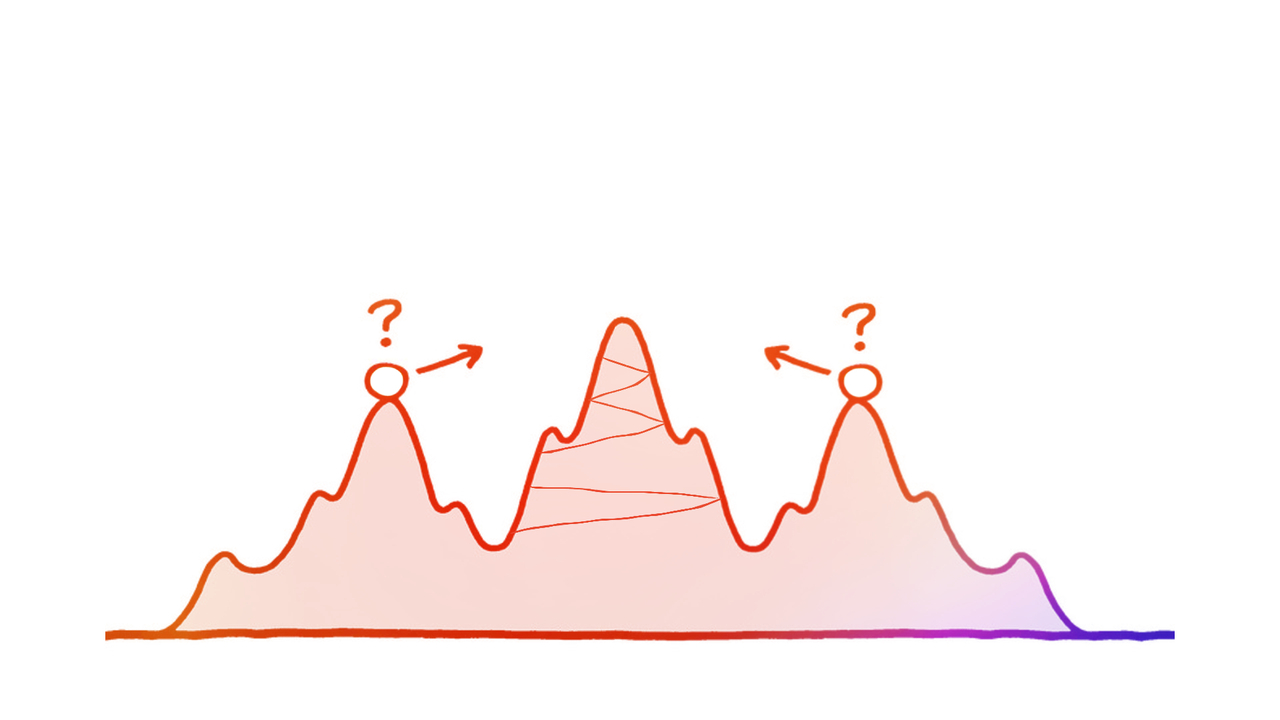By Dustin Eirdosh & Susan Hanisch
We recently argued that "Evolution education is climbing the wrong mountain - Let's change course!", now we are saying the same for sustainability education... what's the connection?
As with evolution education, we can use our friends at the National Center for Science Education (NCSE) as a model of leadership around a surface-level logic for sustainability education, which we claim is holding both the evolution and sustainability education fields from delivering the full value inherent to the learning potential of these topic areas.
To be sure, while we are offering a critique of the NCSE here, they are doing vitally important work and they are excelling at these efforts. They deserve serious credit for tackling the twin political lightening rods of evolution and climate change. However, it is precisely because of their twin focus on these issues that we want to highlight the problem here.
NCSE supports educational leadership and guidance on both evolution and climate science, yet from their framing of these two problems, one is hard pressed to understand how students might see coherent conceptual connections between them. That is not entirely true, their Past vs. Present Climate Change lessons frame our global challenge within a geo-historical context, which of course relates to an understanding of the core evolution concept of deep time. In our view, this is necessary but far from sufficient.
What is missing from the NCSE lessons, and what is largely missing from the field of sustainability education, is a view into the emerging interdisciplinary synthesis occurring within sustainability science - that of understanding the human behavioral, cognitive, and cultural dimensions (herein 'human behavior') of sustainability dilemmas as a foundation for moving towards solutions to these "wicked" problems.
It is clear that solving climate change, like so many other problems of sustainable development, is a problem of collective action at a planetary scale. Emerging organizational networks such as the Climate Task Force of the Coalition of Behavior Science Organizations and the Evolve & Sustain working group of the Cultural Evolution Society are at the leading edge of using evolutionary insights into human behavior to understand, predict, and influence our species' capacity to achieve such a scale of cooperation and thus navigate this otherwise impossible situation.
This is precisely because collective action, our capacity for working together and learning together around things that matter, are at the heart of the human condition. The social conditions that enable large-scale cooperation in our modern society are reflections of the social conditions that have driven the evolution of our species since before we began crafting the tools that would eventually lead us to this current precipice of climate catastrophe (see more at http://Evolution.GlobalESD.org).
The surface logic driving sustainability education is that we should focus student attention and experience on the solving of practical problems. We most certainly want to solve problems, but from a pedagogical perspective, this simplistic focus on problems is itself problematic.
.jpg)
All problems of sustainability are ultimately problems that require engagement with human behavior - from one's own everyday choices, to the way we live, interact with and make decisions together, with other people on every scale of social organization. Even when problems may be solvable through engineering and technological innovations, they still require a citizenry capable of supporting the scientific and democratic institutions to develop and deploy such innovation. More so, a vast majority of problems are deeply rooted in the cultural institutions, norms, biases, and individual level dispositions that variously enable and constrain our collective potential to achieve progress on the grand challenges of our times. Evolution science is currently at the leading edge of a fascinating knowledge synthesis on every aspect of these core elements of the human condition. Our growing collection of open education resources and collaborative education development networks at www.GlobalESD.org support classrooms around the world in making the conceptual connections between evolution and sustainability. Yet, there remains a mountain to climb.
Evolution and sustainability education may seem like two disparate fields, and this notion gets reinforced when the communities behind these educational specialties each pursue separate peaks of progress. If we can pull back and see the pursuit of an understanding of the human condition that is simultaneously practical in nature, yet grounded in the best of our emerging collective factual understanding of our species' past and potential, then we can see a higher, unified peak for which we all can aim.
We are very early in this hike, but the views along the way are unbelievable, Join us!
Related blog posts:
- Evolution education is climbing the wrong mountain
- Learning the concepts of being human
- Teaching human behaviour across the curriculum
- Should we teach evolution beyond the biology classroom?
Cover image and figure adapted from Jurgen Appelo: https://www.flickr.com/photos/jurgenappelo/with/5201851938/







Please sign in or register for FREE
If you are a registered user on Research Communities by Springer Nature, please sign in